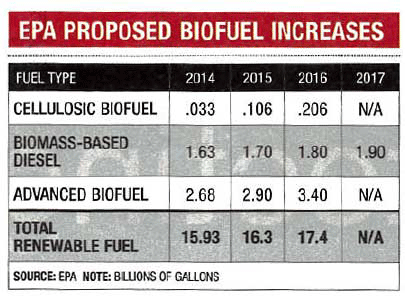EPA Biofuel Proposal Faces Criticism
July 7th, 2015 by Fiedler Group
In late May, the United States Environmental Protection Agency (EPA) proposed 2014-16 targets for cellulosic biofuels, biomass-based diesel and advanced biofuels that are to be blended with gasoline under the Renewable Fuel Standard (RFS).
The proposed targets are an update to the 2005 Energy Policy Act, which created the standard amount of renewable fuels blended with gasoline.
While some proponents promote biofuels blends for motor vehicles as a way to reduce greenhouse gas emissions, environmental groups suggest otherwise — that corn ethanol actually increases transportation emissions.
When the EPA initially postponed releasing biofuel targets in 2014, industry officials believe the uncertainty surrounding biofuels artificially slowed development of new refineries and financing required to expand biofuel capacity.
EPA’s latest proposals will increase amounts of ethanol and similar biofuels — sometimes as much as six times higher than the levels in 2014 (the 2016 standard for cellulosic biofuel is more than 170 million gallons).

Yet, Janet McCabe — head of EPA’s office of air and radiation — believes the proposal will “establish a path for ambitious, responsible growth in biofuels and help provide the uncertainty that the market needs to allow these low-carbon fuels to further develop.”
Industry officials, however, believe the RFS needs to be repealed or reworked, commenting that “growing demand for high-ethanol fuel blends [are not] compatible with most cars on the road today.”
Environmental groups share the same concern, noting this new proposed mandate is problematic.
A 2014 Environmental Working Group report indicates the idea that ethanol would reduce greenhouse-gas emissions has not actually come to fruition.
To learn more about Fiedler Group’s experience with alternative fuel solutions, please contact us today.